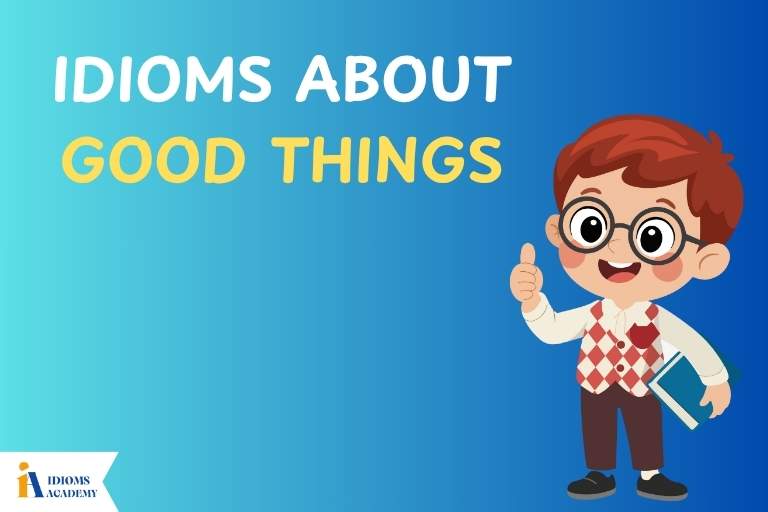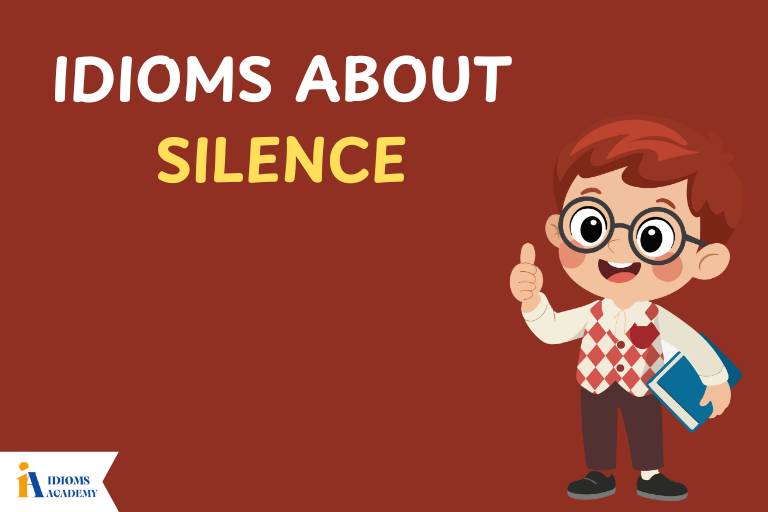Some people try to trick others. They might lie, hide the truth, or act in a sneaky way. In the USA, we use special sayings to talk about these actions. These sayings are called idioms. Idioms don’t always mean what they say. But they help us explain things in fun or easy ways.
In this article, we will look at idioms about deception. These are the kinds of phrases people in America use when someone is not being honest. You may have heard some of them in movies or from adults. Let’s learn what they mean and how to use them in everyday life.
Idioms About Deception
1. Pull the wool over someone’s eyes
Meaning: To trick or fool someone
Example Sentence:
– The salesman pulled the wool over her eyes with that fake deal.
– Don’t let anyone pull the wool over your eyes when shopping online.
Other ways to say: Trick, mislead
Fun Fact/Origin: This idiom comes from old times when people wore wool wigs. If the wig slipped, it blocked their view.
Usage: Used when someone is being fooled or lied to.
2. Lead someone down the garden path
Meaning: To deceive someone by making things seem better than they are
Example Sentence:
– He led her down the garden path with promises he didn’t keep.
– That ad led me down the garden path—it was a scam.
Other ways to say: Mislead, trick with false hope
Fun Fact/Origin: The phrase comes from the idea of leading someone slowly into a trap, like a winding garden path.
Usage: Used when someone is fooled by something that sounds too good.
3. Cry wolf
Meaning: To lie so often that no one believes you when you tell the truth
Example Sentence:
– He always cries wolf, so no one believed him when he was really hurt.
– Don’t cry wolf or people won’t trust you.
Other ways to say: Raise a false alarm, lie repeatedly
Fun Fact/Origin: This comes from a fable where a boy lied about seeing a wolf and then no one believed him when the wolf really came.
Usage: Used when someone lies too often to be trusted.
4. Pull a fast one
Meaning: To trick someone quickly or suddenly
Example Sentence:
– He pulled a fast one and took my parking spot.
– Watch out, they might pull a fast one on you at that store.
Other ways to say: Trick, deceive
Fun Fact/Origin: This idiom became popular in the USA in the 1900s and often meant tricking someone in a smart way.
Usage: Used when someone is fooled quickly without seeing it coming.
5. Blow smoke
Meaning: To say things that aren’t true to make someone feel better or to hide the truth
Example Sentence:
– The coach was just blowing smoke about how well we played.
– Don’t blow smoke—I know the test didn’t go great.
Other ways to say: Lie, give false praise
Fun Fact/Origin: This saying may come from old magic shows where smoke was used to distract people.
Usage: Used when someone is saying things just to impress or mislead others.
6. Bend the truth
Meaning: To slightly change the truth to make it sound better
Example Sentence:
– He bent the truth about why he was late.
– She likes to bend the truth when telling stories.
Other ways to say: Stretch the truth, not be honest
Fun Fact/Origin: Bending something makes it look different, just like bending the truth changes what really happened.
Usage: Used when someone is not completely lying but not being honest either.
7. Two-faced
Meaning: Someone who pretends to be nice but talks badly behind your back
Example Sentence:
– She’s two-faced—nice to your face but mean behind your back.
– I don’t trust him. He’s always two-faced with his friends.
Other ways to say: Fake, backstabber
Fun Fact/Origin: This comes from ancient plays where masks had two sides to show different emotions.
Usage: Used for someone who acts in two different ways depending on who they are with.
8. Play both sides
Meaning: To try to stay friendly with two people or groups that don’t get along
Example Sentence:
– He plays both sides so he doesn’t lose any friends.
– You can’t play both sides forever—people will find out.
Other ways to say: Be sneaky, avoid picking sides
Fun Fact/Origin: This comes from war strategies where someone might pretend to support both armies.
Usage: Used when someone tries to stay on good terms with two groups by hiding the truth.
9. Behind someone’s back
Meaning: To do something secretly so the person doesn’t know
Example Sentence:
– They planned the surprise behind her back.
– Talking behind someone’s back isn’t kind.
Other ways to say: Secretly, without them knowing
Fun Fact/Origin: If something is behind your back, you can’t see it—just like these actions.
Usage: Used when someone does something without being honest or open.
10. Smoke and mirrors
Meaning: Something that looks real or honest but is made to trick people
Example Sentence:
– The ad was just smoke and mirrors to get us to buy it.
– Politicians often use smoke and mirrors during campaigns.
Other ways to say: Illusion, trick
Fun Fact/Origin: Comes from stage magic, where smoke and mirrors hide what’s really going on.
Usage: Used when someone makes things look better than they are to fool others.
11. Fox in the henhouse
Meaning: A tricky person in a place where people trust each other
Example Sentence:
– Hiring him was like putting a fox in the henhouse.
– That scammer acted like a helper—a real fox in the henhouse.
Other ways to say: Sneaky, untrustworthy person
Fun Fact/Origin: In real life, foxes steal chickens, so putting one near hens is asking for trouble.
Usage: Used when a dishonest person is trusted in a safe space.
12. Play dumb
Meaning: To pretend you don’t know something
Example Sentence:
– He played dumb when the teacher asked who broke the window.
– Don’t play dumb—you know what I’m talking about.
Other ways to say: Act clueless, fake ignorance
Fun Fact/Origin: This idiom became popular in the USA in the 1900s to describe people pretending not to know.
Usage: Used when someone pretends not to understand to avoid blame.
13. Pull the strings
Meaning: To control things secretly
Example Sentence:
– She’s the one pulling the strings behind the scenes.
– He acts innocent, but he’s pulling all the strings.
Other ways to say: Secretly control, manage things
Fun Fact/Origin: Comes from puppets—who are moved by hidden strings.
Usage: Used when someone is in control but doesn’t show it openly.
14. Con artist
Meaning: A person who tricks others to get what they want
Example Sentence:
– The man pretending to sell gold was a con artist.
– Watch your wallet around that con artist.
Other ways to say: Trickster, scammer
Fun Fact/Origin: “Con” comes from “confidence trick,” where the trickster gains trust first.
Usage: Used for people who lie to get money or favors.
15. Fake it till you make it
Meaning: To pretend you know what you’re doing until you really do
Example Sentence:
– He didn’t know the job yet, but he faked it till he made it.
– Sometimes you just have to fake it till you make it.
Other ways to say: Act confident, pretend
Fun Fact/Origin: Popular phrase in American business and self-help circles.
Usage: Used when someone pretends to be skilled while learning.
16. Lie through your teeth
Meaning: To tell a big, clear lie
Example Sentence:
– He lied through his teeth about breaking the vase.
– She lied through her teeth to get out of trouble.
Other ways to say: Boldly lie, flat-out lie
Fun Fact/Origin: This phrase shows that the lie is so clear, it even shows through a smile.
Usage: Used when someone tells an obvious lie.
17. Jekyll and Hyde
Meaning: A person with two very different sides—one nice, one mean
Example Sentence:
– He’s like Jekyll and Hyde—so sweet at school but mean at home.
– You never know which side of her you’ll get.
Other ways to say: Two-faced, moody
Fun Fact/Origin: From a famous story about a man with two personalities.
Usage: Used for people who act very differently in different places.
18. Bait and switch
Meaning: To offer something good but then give something worse
Example Sentence:
– That store used a bait and switch to trick shoppers.
– The deal looked great, but it was just bait and switch.
Other ways to say: Trick offer, false promise
Fun Fact/Origin: Comes from old sales tricks where the bait was fake to draw people in.
Usage: Used when someone is tricked by a good offer that turns out false.
19. Double-cross
Meaning: To betray someone who trusts you
Example Sentence:
– He double-crossed his friend to win the contest.
– Don’t trust him—he’s known to double-cross people.
Other ways to say: Betray, backstab
Fun Fact/Origin: Used in spy stories and crime shows to mean someone breaks a promise on purpose.
Usage: Used when someone turns against someone they were helping.
20. Play it off
Meaning: To act like something didn’t happen or isn’t a big deal
Example Sentence:
– She tripped but played it off like nothing happened.
– He played it off when caught lying.
Other ways to say: Pretend it’s fine, brush it off
Fun Fact/Origin: Common in American speech and sports—means acting cool under pressure.
Usage: Used when someone tries to hide something by acting calm.
21. Talk out of both sides of your mouth
Meaning: To say different things to different people to stay liked
Example Sentence:
– He talks out of both sides of his mouth depending on who he’s with.
– Don’t trust her—she talks out of both sides of her mouth.
Other ways to say: Be dishonest, say one thing but mean another
Fun Fact/Origin: Refers to someone saying two different things at the same time.
Usage: Used when someone is trying to please everyone by not being honest.
22. Cover your tracks
Meaning: To hide what you did
Example Sentence:
– He deleted the messages to cover his tracks.
– The thief tried to cover his tracks by wearing gloves.
Other ways to say: Hide evidence, erase signs
Fun Fact/Origin: Comes from tracking animals—if you cover your trail, you can’t be followed.
Usage: Used when someone is trying to avoid being caught.
23. Cook the books
Meaning: To change numbers to hide the truth, especially in money
Example Sentence:
– That company cooked the books to hide their losses.
– He got caught cooking the books at his job.
Other ways to say: Cheat, fake records
Fun Fact/Origin: This idiom is used in business when people change money records.
Usage: Used when someone changes numbers to lie about money.
24. Keep something under wraps
Meaning: To keep something secret
Example Sentence:
– They kept the party under wraps until her birthday.
– The school kept the news under wraps.
Other ways to say: Keep quiet, hide
Fun Fact/Origin: Comes from wrapping something to keep it hidden.
Usage: Used when people want to keep a surprise or secret.
25. Throw someone under the bus
Meaning: To blame someone else to save yourself
Example Sentence:
– He threw his teammate under the bus to avoid trouble.
– Don’t throw me under the bus for your mistake.
Other ways to say: Blame, betray
Fun Fact/Origin: This modern phrase became popular in politics and business.
Usage: Used when someone avoids blame by blaming someone else.
26. Bluffing
Meaning: Pretending you have something better than you really do
Example Sentence:
– He was bluffing about having a great hand in cards.
– She bluffed her way through the meeting.
Other ways to say: Fake confidence, pretend
Fun Fact/Origin: This word is common in poker games where players pretend to have good cards.
Usage: Used when someone pretends to have more power or knowledge.
27. Fiddle the numbers
Meaning: To change numbers to look better than they are
Example Sentence:
– The company fiddled the numbers to hide losses.
– He fiddled the numbers on his homework score.
Other ways to say: Cheat, fake data
Fun Fact/Origin: “Fiddle” means to change or adjust something sneakily.
Usage: Used when people try to make the truth look better by changing it.
28. Not the whole truth
Meaning: To say part of the truth but leave out important parts
Example Sentence:
– He told the teacher not the whole truth about the missing homework.
– That story sounds like it’s not the whole truth.
Other ways to say: Half-truth, leave things out
Fun Fact/Origin: Common in courtrooms and schools where honesty matters.
Usage: Used when someone isn’t fully honest but isn’t lying directly.
Quiz: Idioms About Deception
Instructions: Choose the best meaning for each idiom. Each question has one correct answer.
Question Key
1. What does “pull the wool over someone’s eyes” mean?
a) To give someone a gift
b) To trick someone
c) To help someone
2. If someone “cries wolf,” what are they doing?
a) They are asking for help quietly
b) They are being very honest
c) They are lying so often that no one believes them
3. What does it mean to “bend the truth”?
a) To say something completely made up
b) To tell a small lie or leave out facts
c) To speak loudly
4. If someone is “two-faced,” what kind of person are they?
a) Someone who is kind and fair
b) Someone who acts nice but isn’t honest
c) Someone who likes to dress up
5. What does “behind someone’s back” mean?
a) Doing something secretly without telling them
b) Helping someone when they’re not looking
c) Walking behind a person
6. If a person “plays dumb,” what are they doing?
a) Acting like they don’t know something
b) Telling a funny story
c) Listening carefully
7. What does “throw someone under the bus” mean?
a) Helping someone get on the bus
b) Saying good things about someone
c) Blaming someone else to stay out of trouble
8. What does it mean to “cook the books”?
a) Read a story while cooking
b) Write a recipe book
c) Change money records to hide the truth
9. What is a “con artist”?
a) A person who paints for fun
b) A person who tricks others for gain
c) A person who teaches art
10. If someone is “not telling the whole truth,” what are they doing?
a) Being completely honest
b) Telling part of the truth but hiding something
c) Reading a book out loud
Answer Key
- b) To trick someone
- c) They are lying so often that no one believes them
- b) To tell a small lie or leave out facts
- b) Someone who acts nice but isn’t honest
- a) Doing something secretly without telling them
- a) Acting like they don’t know something
- c) Blaming someone else to stay out of trouble
- c) Change money records to hide the truth
- b) A person who tricks others for gain
- b) Telling part of the truth but hiding something
Wrapping Up
Idioms about deception help people in the USA talk about dishonesty in short, clever ways. They are often used in daily life, movies, and books. These phrases don’t mean what they sound like, but they make talking about tricky situations easier.
Now that you’ve learned these idioms, you’ll be able to spot them and even use them when needed. Just remember, honesty matters—but knowing these sayings can help you understand how others speak too.



